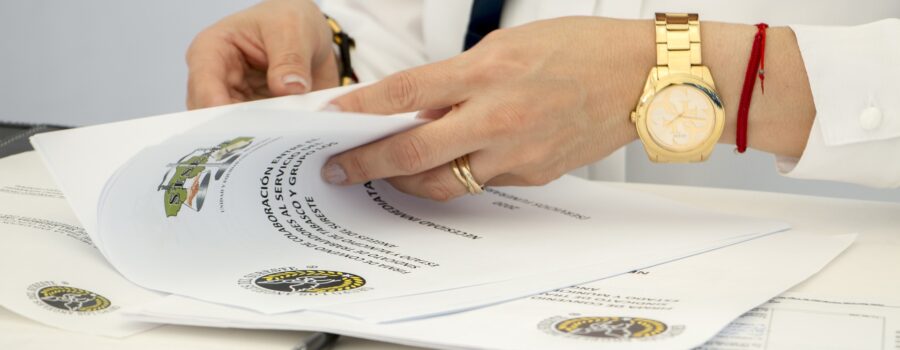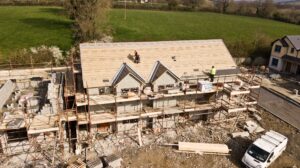
What is a Conditional Use Permit?
When you want to use the land for a purpose that differs from what the land has been zoned for, you will likely need to obtain a conditional use permit. While conditional use permits don’t allow for land to be used for purposes that are directly prohibited by local zoning laws, it’s possible for a conditional use permit to expand the types of uses that are allowed on the property.
A conditional use permit must take any local ordinance requirements into account before you are able to obtain one. In most situations, a public hearing will be held to determine if your request for a conditional use permit should be granted. Before you begin the process of applying for a conditional use permit, it’s important that you understand how this permit works and how it differs from a variance. This article provides a comprehensive overview of conditional use permits.
Key Takeaways:
- A conditional use permit allows for other types of uses on the property that are normally prohibited.
- Your local zoning ordinance will determine whether or not your property will qualify for a conditional use permit.
- There are a variety of standards you may want to consider before applying for a conditional use permit.
What is the Difference Between a Variance and Conditional Use Permit?

If you’re thinking about applying for a conditional use permit, you should first know about the difference between this type of permit and variance. A variance is unique in that it provides the property owner with the ability to use their property in a manner that’s forbidden by the zoning ordinance in question. With a zoning variance, it’s possible to use your property as the site of a business in the event that doing so doesn’t negatively affect the surrounding neighborhood.
When looking specifically at a conditional use permit, these permits provide the property owner with the ability to use their property in a manner that’s permitted by the zoning ordinance but differs from the current use. As such, this type of permit won’t be granted if the use isn’t designated within the zoning district. If you find that a user is permitted by your local zoning ordinance, it’s likely that you would qualify for a conditional use permit. If the user isn’t permitted, it’s possible that the zoning ordinance could be amended to include the intended use. However, it may be easier to apply instead for a zoning variance.
It’s also important to note that ordinance requirements can differ with each zone. For instance, certain ordinances require that any conditional use permit adheres to the extensive land-use plan put forth by the municipality. It’s also likely that the permit will need to be compatible with any nearby properties. Additional standards could be set for specific land uses, which could include hours for business operation, landscaping plans, and off-street parking areas.
What is the Purpose of a Conditional Use Permit?

The primary purpose of a conditional use permit is to allow for a piece of land to be altered in how it can be used in accordance with the local zoning ordinance. In many situations, these permits are granted because the public believes that the new use of land will benefit the community. However, the permit is only granted on a conditional basis, which means that requirements would need to be adhered to by the property owner to ensure that any negative impacts of the new use would be mitigated.
These impacts could include everything from increased traffic to increased noise. Let’s say that a property owner decides to run a business from their home while living in a residential neighborhood. To make sure that nearby properties and land aren’t negatively affected, conditions could be set that allow the property owner to manage a business in their home as long as any customers park in the driveway and only a limited amount of signage is posted around the property. Without these guidelines and restrictions in place, it’s possible that the change in land use would cause nearby properties to lower in value, which could hurt the quality of the neighborhood.
What is the Process of Applying for a Conditional Use Permit?
The application process for a conditional use permit is a relatively simple and straightforward one as long as you understand what this process entails. The application must be proposed directly by a project promoter. A project promoter is someone who is involved with bringing in investments for the project at hand, which differs from the project developer. Once the project promoter proposes the application, this proposal will be considered within a public hearing, which provides the surrounding community with the opportunity to have their opinions heard.
Since a change in how the land is being used will impact the surrounding community, it’s important that they play a role in the final decision. In the event that the public approves of the conditional use permit, some restrictions will be placed on the permit to ensure that any negative impacts of the change are mitigated. The public hearing for a conditional use permit application can be held by a zoning administrator, a planning commission, or a board of zoning. The owner of the property will be sent a notice in advance that provides details on the time, date, and location of the hearing in question. At this hearing, the property owner will have the opportunity to address the public about why they want to alter how their land will be used.
Standards to Determine If a Conditional Use Permit Should Be Granted

Communities can use a variety of different standards to determine if an application for a conditional use permit should be granted. These standards include:
- General welfare standard – This standard is designed to ensure that the new use for the property in question will not cause damage to the property, to improvements on the property, or to the public interests
- Nuisance standard – This standard is meant to prohibit any conditional use permit wherein the new use would clash directly with the nature of the city as well as its surroundings, which could be caused by excess odors, noise, or dust
- General plan consistency – This standard ensures that the conditional use permit must adhere to the comprehensive community plan
- Zoning consistency standard – In order to obtain a permit, the applicant will need to show that the use will fall under local zoning laws and that it will be appealing to public interests or convenience
In the event that you are able to show the public how the new use for your land or property would adhere to all of these standards, it’s likely that your application will be granted. However, these standards aren’t exhaustive. A certain community may have even more rigorous standards that you will be required to meet. Make sure that you identify what these standards are before the public hearing takes place, which should allow you to be fully prepared.
Examples of a Conditional Use Permit
There are many examples of conditional use permits that you should be aware of, which should give you a better understanding of if this type of permit would apply to your situation. As mentioned previously, it’s possible that you would be able to turn your home into a business even if the property is situated within a residential neighborhood. However, traffic would be a significant consideration on the restrictions that occur when you obtain this permit. To ensure that the streets surrounding your property don’t become too crowded, it’s likely that your customers would be required to park within your driveway.
Restrictions may also be placed on the noise levels that your business could generate without causing disturbances with neighbors. At the public hearing, you might need to agree to limited signage for your business before the application is granted. It’s important to keep these limitations in mind before you apply for a conditional use permit.
Another example of a conditional use for a property involves a church being developed within a residential neighborhood. The conditions that are set to mitigate the negative impacts of this development could involve parking limitations and the need to make traffic control improvements before the church could be constructed.
You can contact the Los Angeles Department of Building and Safety to identify if your property would require a conditional use permit for the intended use. You could also submit your application to the Department of Regional Planning, after which it will be reviewed within 30 days. Once the review has been completed, the date for a public hearing will be set.
Conditional use permits can be very helpful for property owners who want to change how their property is used for any number of reasons. Whether you want to construct a church on your property or would like to convert your home into a business, a conditional use permit may be exactly what you need before development begins. Keep in mind that conditions will be set for the project at hand, which you must be aware of before you invest money into the project. As long as you prepare for the public hearing and are able to meet the standards set by the surrounding community, your permit application will likely be granted.

Jason Somers, President & Founder of Crest Real Estate
With over 15 years of professional experience in the Los Angeles luxury real estate market, Jason Somers has the background, judgement and track record to provide an unparalleled level of real estate services. His widespread knowledge helps clients identify and acquire income producing properties and value-ad development opportunities.
Learn more about Jason Somers or contact us.



